Safe Use of Grills for Outdoor Cooking: Preventing Injury and Fires
Summer months and outdoor grilling go hand in hand, and these tips for using different grill types will help keep the season safe and the food delicious.
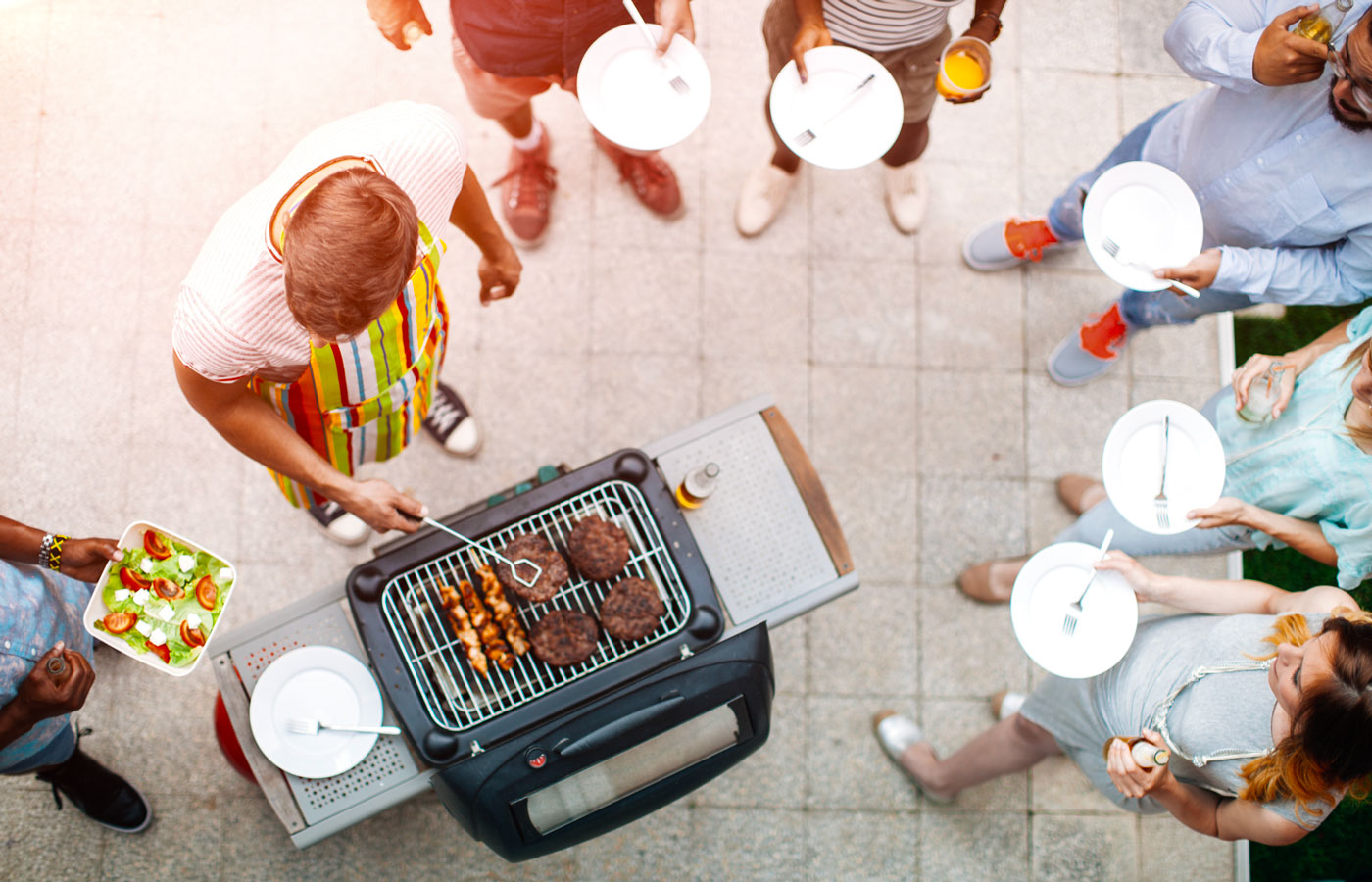 Getty
Getty
Nothing says summer like grilling outdoors. A tradition in backyards around the country, grilling offers a delicious alternative to cooking in an oven. However, the excitement of outdoor cooking can quickly turn dangerous if safety precautions are not taken seriously.
Thousands of injuries and fires result from improper grilling each year, making it crucial to understand and implement grill safety practices. Let's look at some tips for preventing these incidents, plus considerations to help protect your home and family, and ensure your outdoor cooking experiences remain enjoyable and hazard-free.
Understanding Grills and Fuel Types
When cooking outdoors, understanding the different grills available is crucial for performance and safety. The three most common types of grills for home use are gas, charcoal and electric. Each requires specific fuel and maintenance practices to ensure safe operation.
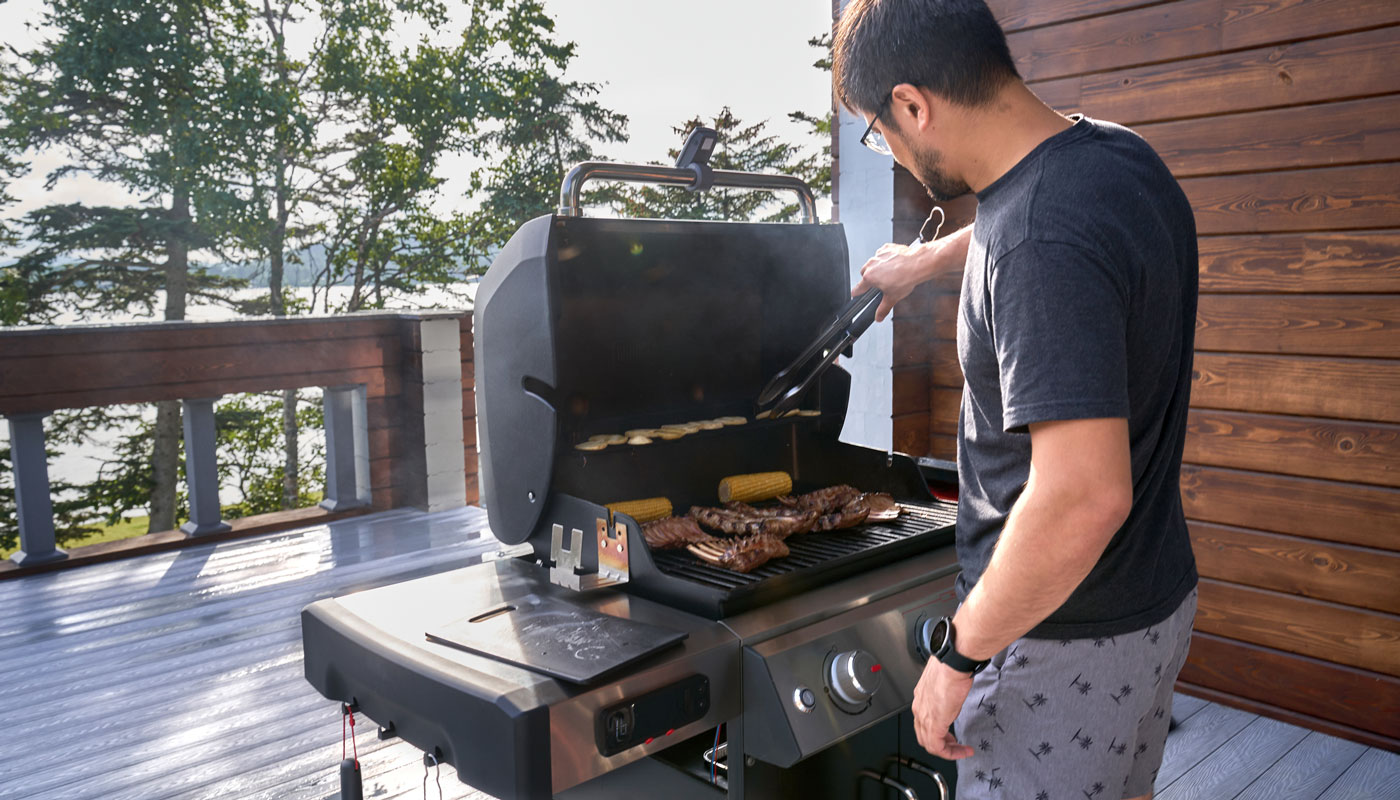 Getty
Getty
1. Gas Grills
Powered by propane or natural gas, gas grills heat up quickly and provide precise temperature control, making them the most popular home grills. With power supplied by propane tanks or connected directly to a home gas line, it's important for homeowners to check for gas leaks regularly and to make sure all connections are secure. According to the National Fire Protection Association, more than 9,000 house fires result from using gas grills every year. Regular inspections can help prevent some of these incidents and keep people safe. Make sure hoses are free of cracks and connections are tight to prevent gas from leaking.
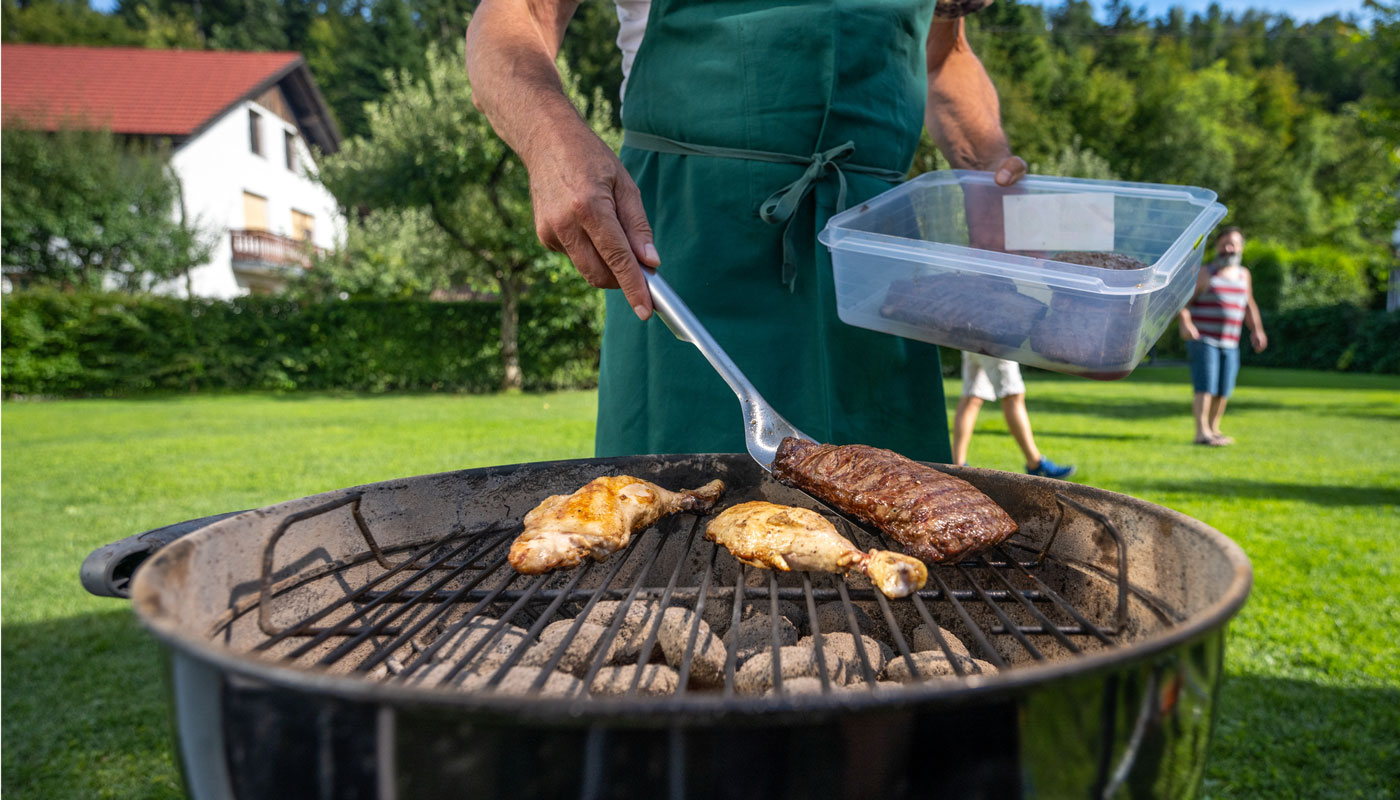 Getty
Getty
2. Charcoal Grills
Favored by grilling purists who enjoy the flavor they add to food, charcoal grills use briquettes or lump charcoal as fuel. Requiring more time to light the fuel and reach the desired cooking temperature, charcoal also poses a higher risk of flare-ups and requires careful handling of the hot coals and ashes. To minimize risk when lighting a charcoal grill, use a chimney starter or electric lighter instead of lighter fluid. If you do use lighter fluid, never apply it to hot coals. Always make sure the charcoal grill is placed on a solid, non-flammable surface to help prevent tipping or accidental fires.
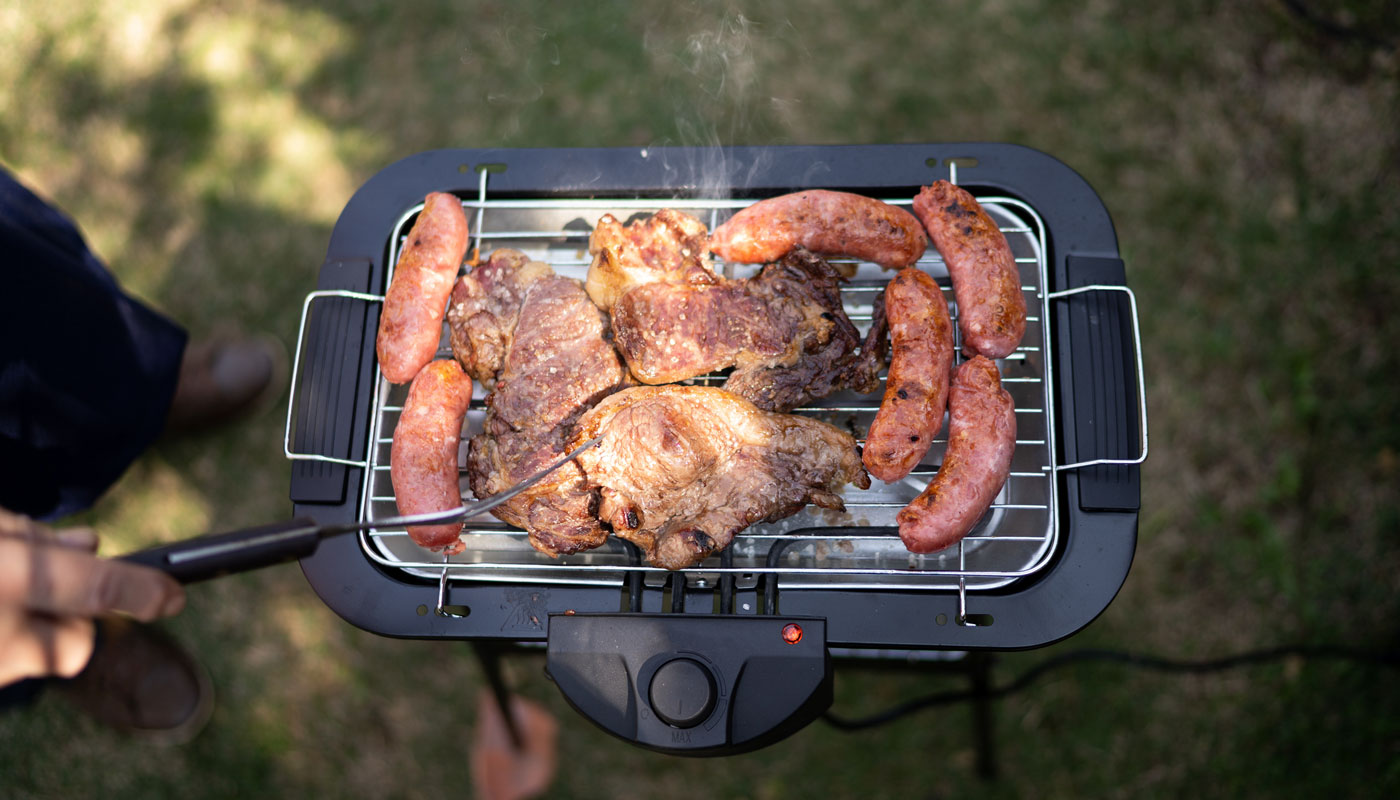 Getty
Getty
3. Electric Grills
Electric grills plug into a standard electrical outlet, making them an excellent option for those with limited outdoor space or in homes where open flames aren't allowed. Electric grills offer consistent heat, are easy to use and clean, and are considered safer than gas or charcoal grills, making them ideal for smaller homes or condos. However, the ability to get a high heat is limited, which may affect the flavor of the grilled food. It's also imperative to make sure the grill has a proper extension cord rated for outdoor use to avoid electrical hazards.
Preparation and Planning
Preparation and planning while outdoor grilling is crucial for an enjoyable and safe experience. Begin by selecting a stable, non-flammable location at least 10 feet away from structures and deck railings. Gather all necessary tools and ingredients before starting the grill to minimize distractions. Avoid sudden movements around the grill, and make sure children never play nearby. Additionally, check weather conditions to avoid grilling in high winds or inclement weather, which can increase the risk of fire spreading or the grill tipping over.
Fire Prevention Week is in October, but house fires can occur at any time—and most are preventable.
Use These Tips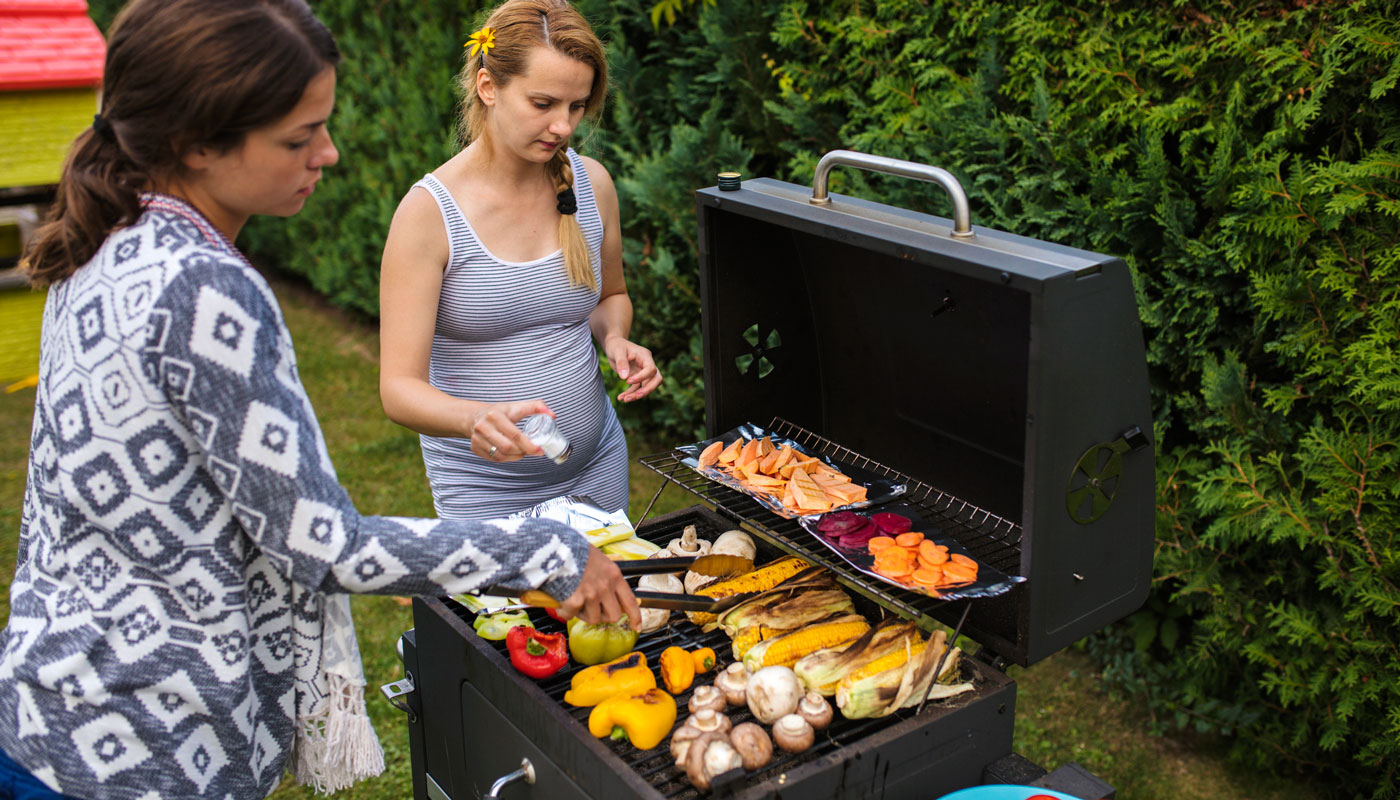 Getty
Getty
Safety Equipment and Precautions
In addition to having the necessary tools for grilling, safety equipment is important to help prevent accidents and to manage unexpected situations. Always have a fire extinguisher that is appropriate for your grill type; an alternate safety measure is a bucket of sand to help extinguish minor flare-ups.
Regularly inspect your grill, focusing on gas connections and grease buildup. Clean the grill after every use to help prevent grease fires and improve performance. Hot grills should never be left unattended, and children and pets should always be kept at a safe distance. Additionally, proper ventilation is necessary to avoid the buildup of toxic fumes.
After you’re done grilling, don’t cover or put the grill away until it has completely cooled down. Storing a hot or warm grill in an enclosed location can ignite flammable materials. Leaving the grill open to allow the heat to escape can help it cool down more quickly. For gas grills, be sure to completely turn off the gas supply. For charcoal grills, wait until the coals and ashes are completely cooled down. Then, remove them and dispose of them in a metal container.
Homeowners Insurance Considerations
Before grilling, homeowners should fully understand their insurance policy coverage. Reviewing the policy to determine coverage for grilling-related incidents is important, as is ensuring compliance with any requirements or exclusions laid out. Before installing a permanent grill, outdoor kitchen or attaching grills to a gas line, inform your insurance provider to adjust coverage, if necessary. This proactive approach can help prevent potential coverage issues if a claim needs to be filed.
Emergency Response and Reporting
As important as taking precautions and being knowledgeable about grill safety is, it's equally important to be prepared to respond quickly to emergencies. Everyone near the grill should familiarize themselves with basic first aid procedures. Having a well-stocked first aid kit nearby is paramount, as is having a working fire extinguisher handy.
If a fire starts when using a gas grill, the gas supply needs to be turned off immediately if safe to do so. Never hesitate to contact the fire department, especially if the fire grows quickly. A quick and effective response can minimize damage and ensure the safety of everyone involved.
If an incident occurs, report it to your homeowner's insurance company immediately so that any necessary claims can be started.